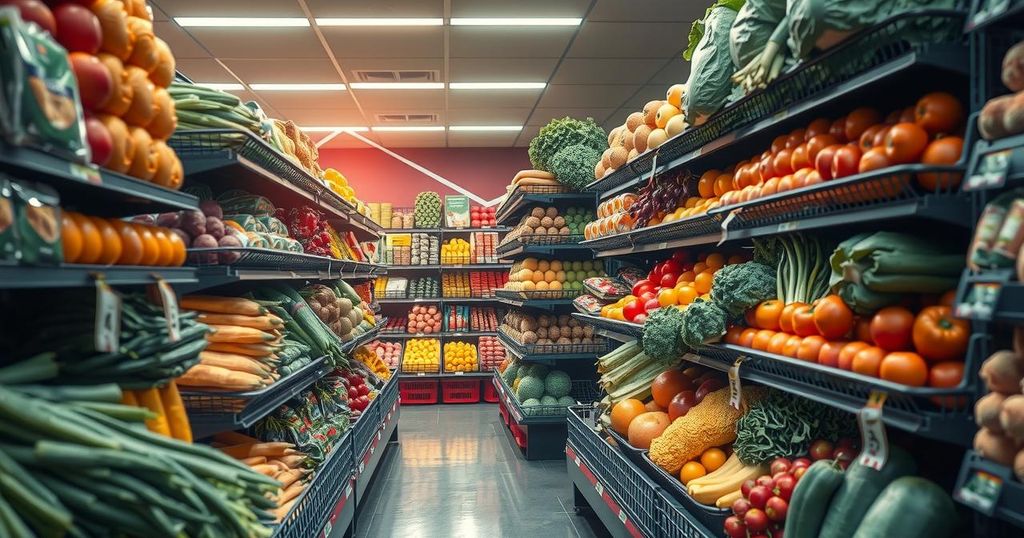Impact of Trump Tariffs on Grocery Prices from Mexico and Canada

On February 1, President Trump will impose a 25% tariff on goods from Mexico and Canada, major suppliers of agricultural products to the U.S. This move could increase grocery prices, adding to the financial strain on American families already facing rising food costs. With Mexico and Canada collectively responsible for a significant portion of U.S. agricultural imports, the impact on consumers is likely to be substantial.
On February 1, the White House announced that President Donald Trump will enact a 25% tariff on goods imported from Mexico and Canada. These nations are significant suppliers of grocery items to the United States, and the tariffs could lead to increased prices on staples such as fresh fruits, vegetables, dairy, and grains. With grocery retailers already experiencing narrow profit margins, these costs may ultimately be passed on to average consumers, compounding existing concerns about rising grocery bills.
Mexico is the largest provider of fruits and vegetables to the U.S., while Canada ranks high in the export of grains, livestock, and various meats. Although specific products that will be affected by the tariffs remain unspecified, agricultural imports are likely to bear the brunt of the price increases.
The U.S. imports more agricultural goods than it exports, especially in recent years as imports have grown faster than exports, according to the Department of Agriculture. The increasing impact of climate change has also heightened U.S. dependency on favorable growing conditions found in Mexico.
In the previous year alone, Mexico and Canada together accounted for nearly $83 billion of the total $196 billion in agricultural imports to the U.S. from January to November, underscoring their vital role in food supply. Additionally, these countries rank among the top three sources for other imported goods, including vehicles, oil, and electronics, and are essential trade partners.
In summary, the impending tariffs imposed on Mexico and Canada could lead to substantial price increases on everyday grocery items, thereby affecting the financial burden of American families already struggling with high food costs.
The Trump administration’s proposed tariffs on Mexico and Canada are significant given these countries’ roles as major agricultural suppliers. A substantial portion of U.S. grocery items, including key categories like fruits, vegetables, grains, and meats, are imported from these neighboring nations. This dependence has implications for food prices, particularly as climate conditions and trade dynamics evolve. The announcement comes at a time when many American households are already facing challenges due to rising grocery prices.
The introduction of tariffs by the Trump administration on agricultural goods from Mexico and Canada has the potential to escalate grocery prices in the United States. As these countries are pivotal in supplying key food items, any tariff imposition could strain consumer budgets. The situation highlights the interconnectedness of trade policies and everyday living costs for American families, emphasizing the need for careful consideration in trade negotiations.
Original Source: www.cnn.com








